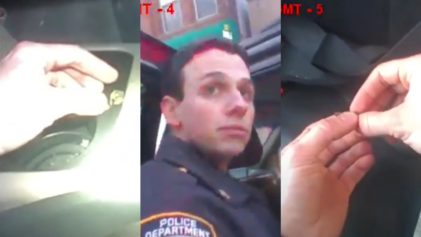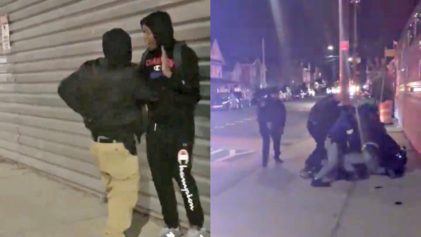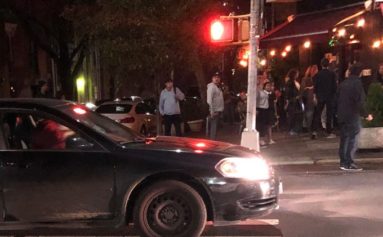The new administration of Mayor Bill de Blasio is making its presence felt in New York City, as the New York Police Department announced that it was disbanding a controversial unit that monitored the actions of the city’s Muslims under the guise of fighting terrorism.
The existence of the unit—first revealed in stories by the Associated Press—had been the focus of lawsuits and angry protests by the Muslim community and civil libertarians.
In published reports, Linda Sarsour, executive director of the Arab American Association of New York, indicated that she and a group of Muslim advocates met last week with police brass and were told by John Miller, the department’s new intelligence chief, that the Zone Assessment Unit was no longer viable.
While she was pleased by the news, Sarsour told the AP she was still concerned about the NYPD using informants to infiltrate mosques without specific evidence of crime.
“This was definitely a part of the big puzzle that we’re trying to get dismantled,” Sarsour said. But, she added, “This doesn’t necessarily prove to us yet that these very problematic practices are going to end.”
New York Civil Liberties Union Executive Director Donna Lieberman said, “We hope this means an end to the dragnet approach to policing that has been so harmful to police-community relations, and a commitment to going after criminal suspicion, rather than innocent New Yorkers.”
According to NYPD spokesman Stephen Davis, detectives assigned to the unit had been transferred to other duties within the department’s Intelligence Division. New Police Commissioner William Bratton—who served as commissioner under Mayor Rudolph Giuliani—concluded that the department would be better served by collecting information through direct contact with community groups.
De Blasio called the move “a critical step forward in easing tensions between the police and the communities they serve, so that our cops and our citizens can help one another go after the real bad guys.”
Previously called the Demographics Unit and conceived with the help of a CIA agent, the unit assembled databases on where Muslims lived, shopped, worked and prayed, according to published reports, sending undercover officers into Muslim student groups, putting informants in mosques, monitoring sermons and noting Muslims in New York who adopted new, Americanized surnames.
After the AP revealed the unit’s existence, two lawsuits were filed challenging the activities as unconstitutional because they focused on people’s religion, national origin and race. Although then-Police Commissioner Ray Kelly defended the surveillance tactics, a deposition made public in 2012 revealed that an NYPD chief testified the unit’s work had never generated a lead or triggered a terrorism investigation in the previous six years.
Just two months ago, a federal judge dismissed a lawsuit against the department over the surveillance of Muslim-Americans, claiming the monitoring was justified because police were trying to find terrorists hiding among law-abiding Muslims.
“The police could not have monitored New Jersey for Muslim terrorist activities without monitoring the Muslim community itself,” Judge William Martini, a President George W. Bush appointee, wrote in his controversial decision. “The motive for the program was not solely to discriminate against Muslims, but rather to find Muslim terrorists hiding among ordinary, law-abiding Muslims.”
Martini went further by writing that any harm suffered by the Muslim community was not the fault of the police but of the Associated Press, which won a Pulitzer Prize in 2012 for the series.
The lawsuit was initiated by a Muslim civil rights group and the Center for Constitutional Rights. But Martini dismissed the suit, partly hinging his ruling on a 2009 Supreme Court decision dismissing a lawsuit against federal officials over the detention of Arab Muslim men after Sept. 11.
“It should come as no surprise that a legitimate policy directing law enforcement to arrest and detain individuals because of their suspected link to the attacks would produce a disparate, incidental impact on Arab Muslims, even though the purpose of the policy was to target neither Arabs nor Muslims,” Justice Anthony Kennedy wrote in that decision.



